Tag: Sharpe (George H.)
 Wikipedia says: George Henry Sharpe (February 26, 1828 – January 13, 1900) was an American lawyer, soldier, Secret Service officer, diplomat, politician, and Member of the Board of General Appraisers.
Wikipedia says: George Henry Sharpe (February 26, 1828 – January 13, 1900) was an American lawyer, soldier, Secret Service officer, diplomat, politician, and Member of the Board of General Appraisers.
Sharpe was born in 1828, in Kingston, New York, into a prominent Ulster County family. He earned his bachelor’s degree at Rutgers University and studied law at Yale University. He practiced law in New York City from 1847 to 1851. He served as Secretary of the United States Legation in Vienna, Austrian Empire from 1851 to 1852 and then resumed his law practice in New York from 1854 to 1861.
At the outbreak of the Civil War, Sharpe served as a captain in a New York regiment for three months and then returned to civilian life. In 1862, at the request of the Governor of New York, he raised a new regiment and went back into service as a colonel with the Army of the Potomac. In 1863, Maj. Gen. Joseph Hooker selected Sharpe to command the Bureau of Military Information (BMI), the Army of the Potomac’s intelligence operation. He served in that role until the end of the war. By the war’s end, Sharpe was promoted to brevet major general.
After the war, Sharpe mixed his law practice and the pursuit of his interests in New York state Republican Party politics with several stints in Federal government service. He went to Europe to investigate the Lincoln assassination conspiracy for the State Department. He served as a U.S. Marshal in New York City and as Surveyor of the Port of New York. In 1878, he was elected to the New York State Assembly and served for four years, for two of which he was selected as Speaker. In 1884 he was appointed head of the U.S. Commission to Central and South America and then he ended his career with an appointment to the U.S. Board of General Appraisers in 1890.
…Sharpe had joined the 20th New York State Militia Regiment, based in Kingston, after returning to the United States from his service abroad. By 1861, he had been commissioned to the rank of captain and had been elected to the command of Company B. After the Confederate attack on Fort Sumter in April, the regiment served on guard duty at Annapolis and Baltimore until July. His company was dissolved back in New York for lack of troops at the end of August and Sharpe returned to civilian life.
Sharpe took up his practice of law again and pursued his interest in local Republican politics. But in July 1862, when President Lincoln issued a call for volunteers, the governor asked Sharpe to help raise a new regiment. He did so and was appointed colonel of volunteers of the 120th New York Infantry. Sharpe and the regiment served in the defenses of Washington and from October onward with the Army of the Potomac. They participated in the Battle of Fredericksburg and the infamous Mud March in December but did not see heavy action.
In January 1863, Maj. Gen. Joseph Hooker was appointed to command the Army of the Potomac and he sought to rebuild the army’s intelligence operation. In February, he selected Sharpe to command what became the Bureau of Military Information (BMI) and ultimately appointed him deputy provost marshal general of the Army of the Potomac, under Provost Marshal Brig. Gen. Marsena R. Patrick. Sharpe then built up the BMI staff of analysts, scouts and guides, and civilian support. By the time of the Army of the Potomac’s next major operation at Chancellorsville, in late April, Sharpe had obtained the service of three additional analysts and 24 scouts and guides.
The BMI was the U.S. military’s first “all source” intelligence organization. As the bureau’s commander, Sharpe deployed scouts and enlisted civilian agents to report on activities behind enemy lines. He and his assistant analysts interrogated prisoners, deserters, and refugees, and analyzed documents (mostly letters and newspapers). Sharpe also obtained reports from cavalry reconnaissance, Balloon Corps observation, and Signal Corps observation and flag signal intercepts for his analysis. He and his assistants wrote the BMI’s reports.
Sharpe served as the head of the BMI for the remainder of the war. His service and the BMI’s work was essential to the Union success in the Eastern Theater because of their ability to determine the whereabouts and activities of Robert E. Lee’s Army of Northern Virginia, even when the two armies were out of contact and other Union arms like the cavalry were not operating effectively. On July 4, 1864, to better support all of the Union forces operating in the Richmond-Petersburg area, Lt. Gen. Ulysses S. Grant redesignated the provost marshal of the Army of the Potomac as the provost marshal of the Armies Operating Against Richmond, transferring Sharpe and the BMI to his headquarters. On February 7, 1865, Sharpe was promoted brevet brigadier general of volunteers (backdated to December 20, 1864).
In April 1865, after Lee’s surrender at Appomattox Court House, as deputy provost marshal general, Sharpe paroled 28,000 Confederate Army soldiers, among them General Lee. At that point, the BMI’s mission ended and it went out of existence. In June, Grant promoted Sharpe to brevet major general of volunteers (effective March 13, 1865) and Sharpe returned to Kingston with his regiment and soon mustered out with them.
Showing all 10 resultsSorted by latest
-
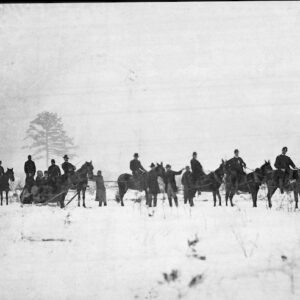
Image ID: AYXC
$0.99 -

Image ID: AQDF
$6.99 -
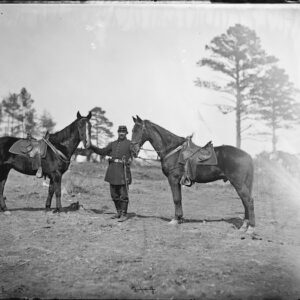
Image ID: AQTY
$6.99 -
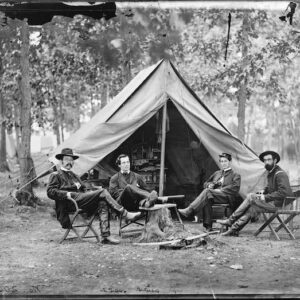
Image ID: ANFT
$6.99 -
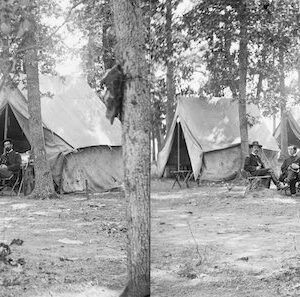
Image ID: ATEP
$6.99 -
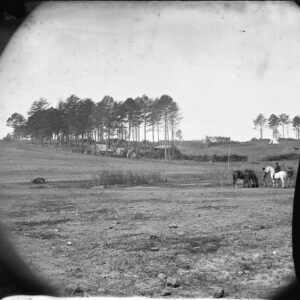
Image ID: AJMD
$5.99 -
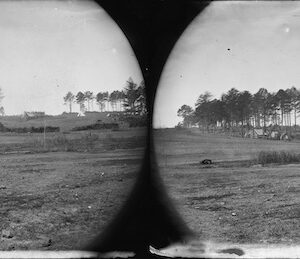
Image ID: ANBL
$5.99 -
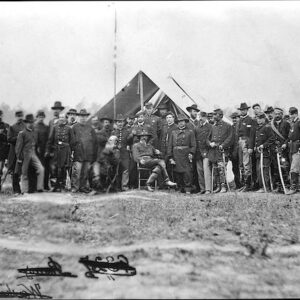
Image ID: ADDQ
$4.99 -
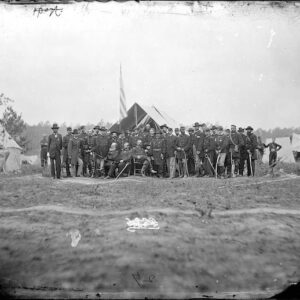
Image ID: ADQQ
$4.99 – $6.99 This product has multiple variants. The options may be chosen on the product page -
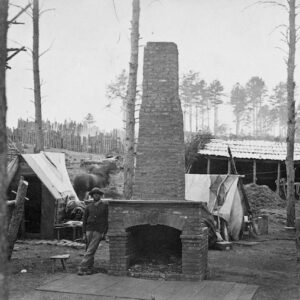
Image ID: AILR
$6.99